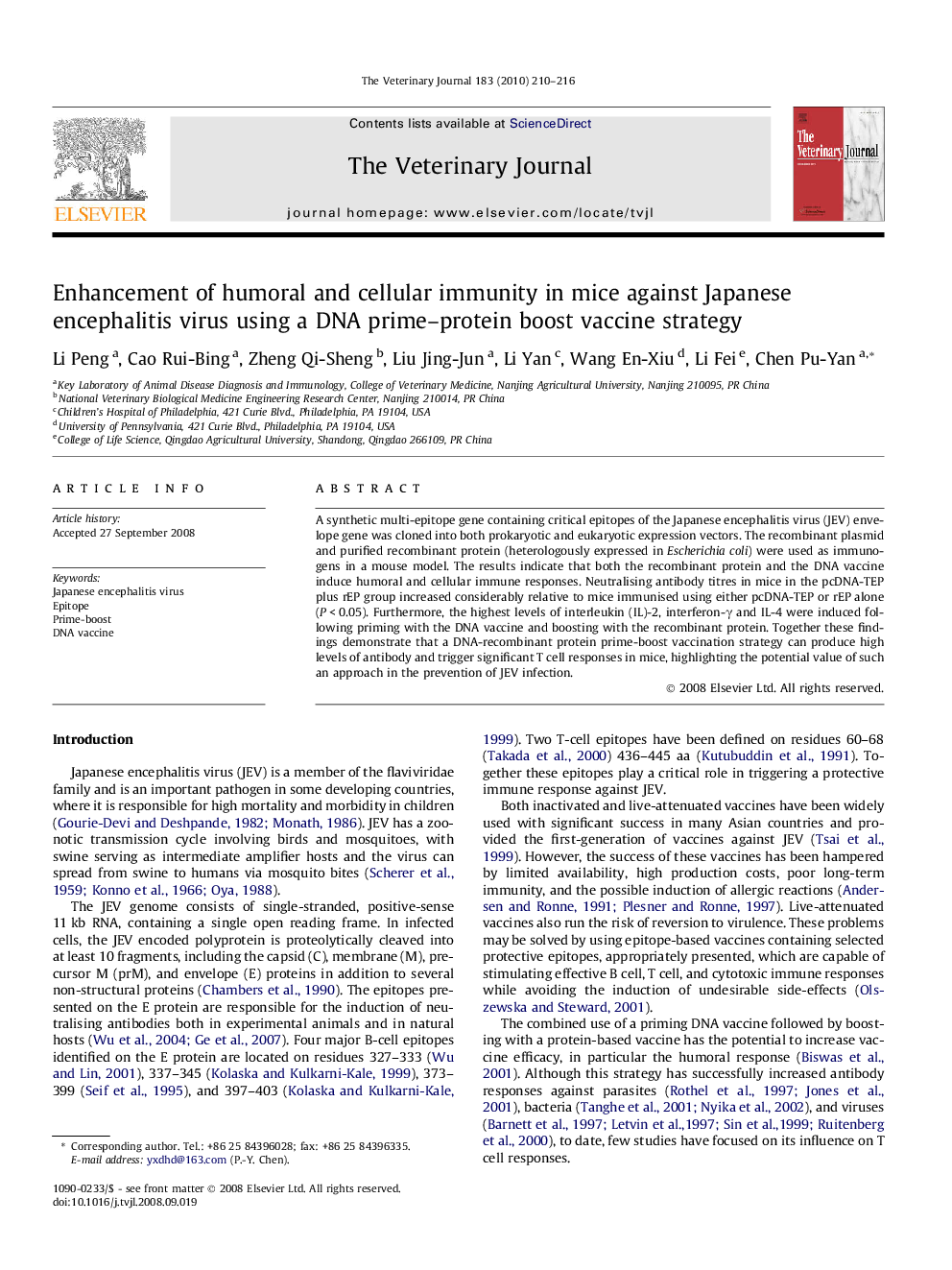| Article ID | Journal | Published Year | Pages | File Type |
|---|---|---|---|---|
| 2464758 | The Veterinary Journal | 2010 | 7 Pages |
A synthetic multi-epitope gene containing critical epitopes of the Japanese encephalitis virus (JEV) envelope gene was cloned into both prokaryotic and eukaryotic expression vectors. The recombinant plasmid and purified recombinant protein (heterologously expressed in Escherichia coli) were used as immunogens in a mouse model. The results indicate that both the recombinant protein and the DNA vaccine induce humoral and cellular immune responses. Neutralising antibody titres in mice in the pcDNA-TEP plus rEP group increased considerably relative to mice immunised using either pcDNA-TEP or rEP alone (P < 0.05). Furthermore, the highest levels of interleukin (IL)-2, interferon-γ and IL-4 were induced following priming with the DNA vaccine and boosting with the recombinant protein. Together these findings demonstrate that a DNA-recombinant protein prime-boost vaccination strategy can produce high levels of antibody and trigger significant T cell responses in mice, highlighting the potential value of such an approach in the prevention of JEV infection.
